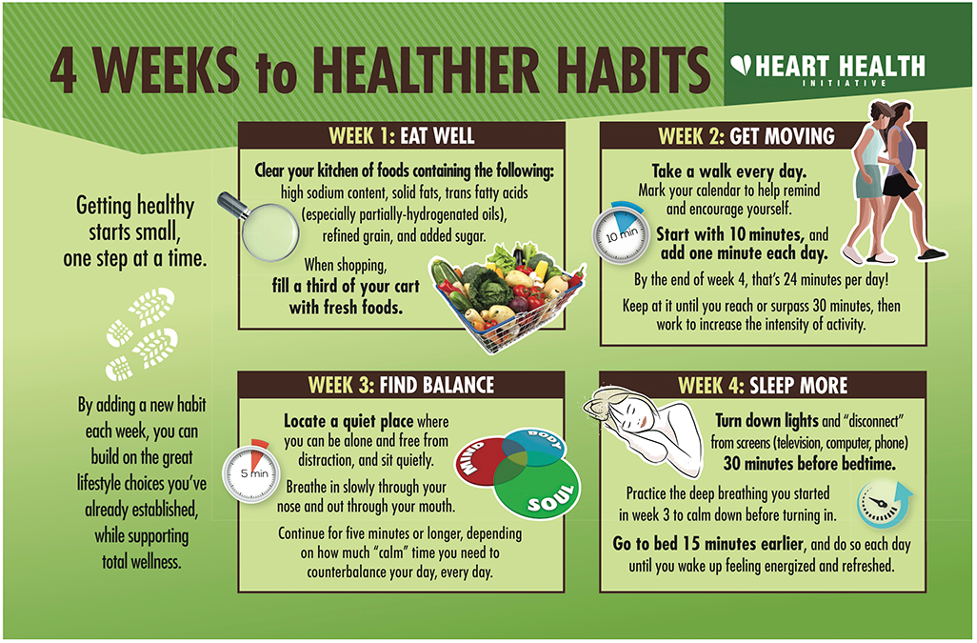January 2021 - Tips for a Healthy Start to 2021
We can all admit that 2020 was a year like none other. Even with everything we experienced, we can give thanks to The Lord for making it to another year! While we continue to trust God and adhere to all the public health guidelines, we also want to do our best to focus on our overall health and wellbeing. It’s usually around this time of year that we stop to think about our health goals. As we enter the new year, many of us are looking for ways to be more committed to taking care of ourselves. A common goal especially this year is to rid ourselves of the few extra pounds we may have picked up while stress eating due to sheltering in place. And while health goals commonly have to do with weight loss, our health is also about integrating self-care into our lives, staying on top of our mental health, and getting adequate sleep.
So, to help us all start the year on the right path, here is a quick and easy guide for the first four (4) weeks of the new year. If we all commit to incorporating these healthy habits into our routine, then we will be sure to realize some of our health goals.

Maintaining optimal health isn’t only good for our well-being, it also affects our ability to achieve other goals. By becoming the best version of yourself, you will be setting yourself up for success in everything you do.
Infographic Source: Dr. Louis Ignarro


